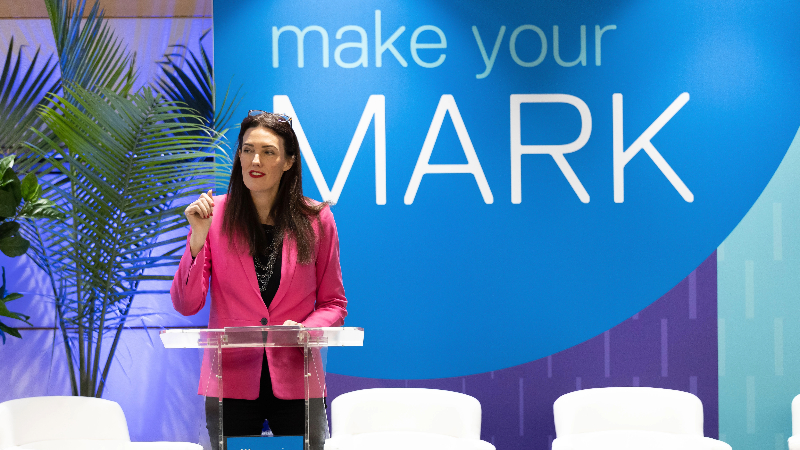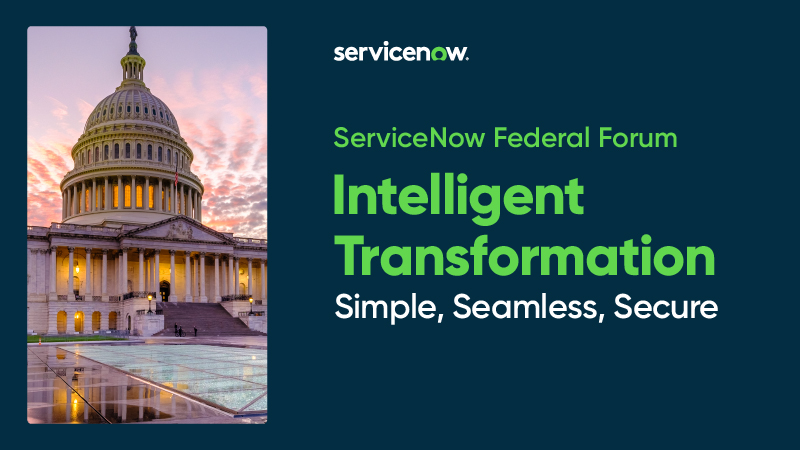
Alexis Bonnell, the chief information officer (CIO) and director of the Digital Capabilities Directorate at the Air Force Research Laboratory (AFRL), shared with industry today the five deadly sins of digital transformation, and called on organizations to adopt a people-centric mindset.
Coming from a private sector background herself, Bonnell shared the sins to highlight what she “got wrong before” and drive home the fact that technology is ultimately about people.
“I think the very first one is the most important, and that is this: digital transformation is not about technology. It is about recognizing who we want to be as an organization, how we want our people to behave,” Bonnell said at the Digital Transformation Summit on Feb. 22 hosted by ACT-IAC and Carahsoft.
For example, the CIO said that her main job is to help her employees “unleash their curiosity.” Curiosity, she said, helps the AFRL answer “what if” faster than the adversary.
The second deadly sin she highlighted is to assume there is a technological destination.
“This is why I don’t like the word transformation because it assumes that there is an endpoint,” Bonnell said. “This is an ongoing journey.”
“We want to be curious. The world is a changing place,” she continued. “So, really thinking about and choosing technology or choosing the paths that we go on for digital is much more about how it is that we sustain a change engine versus the time capsules that we tend to create.”
Bonnell said that her job, especially in digital, is largely about creating wormholes – finding a way to do things better, faster, and smarter.
Similarly, the third sin is the one that Bonnell believes is the most deadly and the one that “we’re most guilty of right now,” which is underestimating toil.
She explained that it’s easy to tell someone, “Well, it’s just five minutes. It’s just one form. It’s just another training. It’s just an hour.” However, she said this mindset is “killing people” as they lose time to do other important tasks.
“I believe that digital actually allows us to convert toil into time,” Bonnell said. “It can give us wormholes so that someone is spending maybe less time on a form and more time, in my case, a scientist and researcher on bench discovering really important things.”
The fourth deadly sin, she said, is “thinking doing differently is enough.” Instead, she said leaders must turn inward and first ask themselves: “Am I willing to transform?”
“We have an opportunity collectively to stop thinking about ourselves as system owners, or platform owners or things like that, and start thinking about ourselves as knowledge stewards,” Bonnell said. “This, to me is the moment, kind of this exponential age, [that] is really about our relationship with knowledge.”
Finally, the fifth deadly sin she shared is incentivizing the critic instead of the doer.

For instance, she said that it’s really hard to be “the person in the ring” who’s trying to figure out a new tool. Bonnell explained that we need to pay more attention to the person who’s actually building the new tool as opposed to the critic who’s pointing out what’s wrong.
“I’d really ask as you go into your organizations, as I look at mine, is, ‘How is it that I empower the doer and the champion?’ And it doesn’t mean critical and constructive voices aren’t good, but they do not get more airtime than the people who actually have to do the work.”
To conclude her keynote speech, Bonnell said that “we have an opportunity to change,” but the Federal government and industry’s values must align.
“My ask of you would be: I am dedicated to greater intimacy with our partners with our technology, but in digital transformation, the most important thing is that our values have to align,” Bonnell said. “And we have to understand what we are ultimately doing is creating technology that serves the people and their potential to be the best they can be.”
